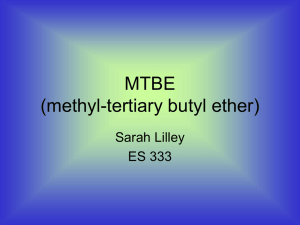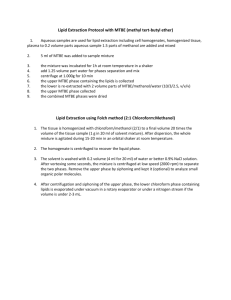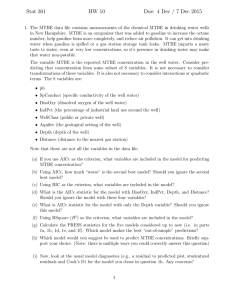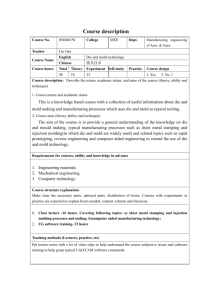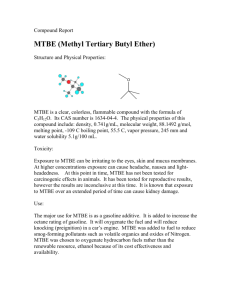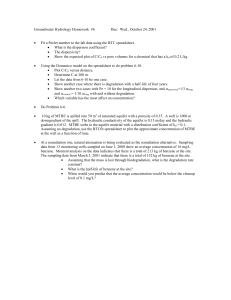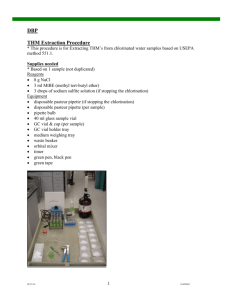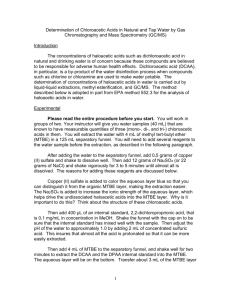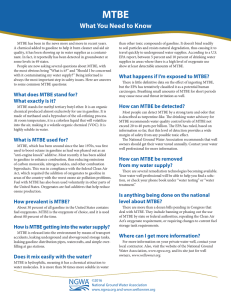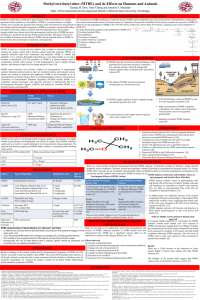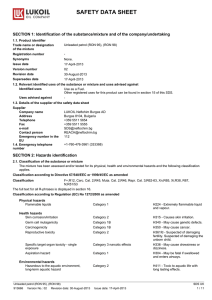Emerging Exposures
advertisement
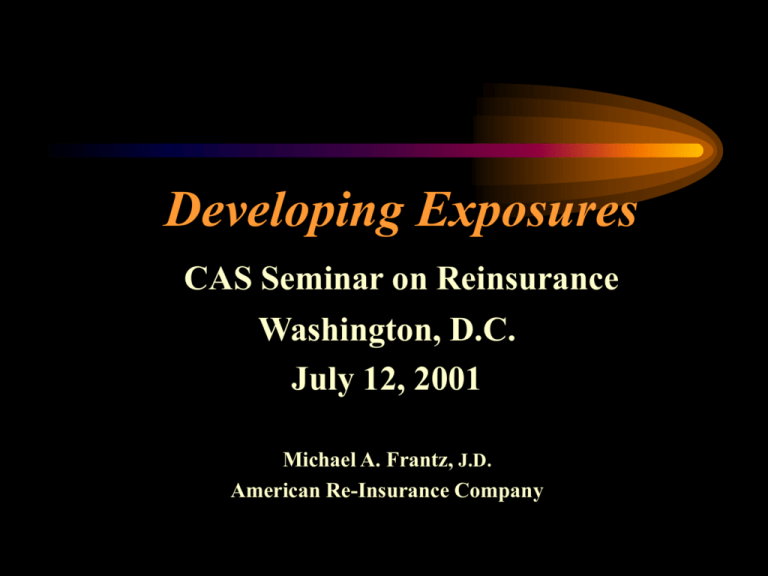
Developing Exposures CAS Seminar on Reinsurance Washington, D.C. July 12, 2001 Michael A. Frantz, J.D. American Re-Insurance Company Format of the Presentation “Identified” Exposures “Developing” Exposures Questions and Discussion Identified Exposures Asbestos Pollution Breast Implants Sexual Misconduct Repetitive Stress HIV/AIDS Fen-Phen Developing Exposures Developing Exposures Advertising Injury / Intellectual Property Firearms Latex Sensitivity Lead Managed Care Mold MTBE Tobacco Advertising Injury/Intellectual Property Types of claims include: Offenses committed in the course of advertising activities Libel, slander, defamation, violation of privacy, piracy, copyright, trademark, tradedress, style of doing business or patent infringement Interference with potential business advantage Advertising Injury/Intellectual Property New insurance products address some of these risks, but coverage issues under the CGL form exist, including, Advertising Injury Coverage Whether Insured is in the business of advertising Whether in the course of advertising Whether it fits one of the “offenses” Whether during the policy period Whether 1st publication exclusion applies Advertising Injury/Intellectual Property Personal Injury Coverage Whether it fits one of the “offenses” Whether claims are invasion of recognized privacy right Whether during the policy period Whether 1st publication exclusion applies Firearms Product liability actions are a recent phenomenon Lawsuits include: Private recovery actions Public recovery actions modeled after the government’s efforts against the tobacco industry Firearms 8/4/99 Journal of the AMA report puts the annual cost for medical treatment of gunshot wounds at $2.3BB (1994 data) A Cal State/Tulane Univ. study in October 1998 indicates 29% of high school boys possess a firearm The Bureau of ATF estimates handguns are used in 71% of all armed crimes Firearms Typical defendants include: Gun manufacturers Pawn shops Firearms trade associations Recent Developments USDC in Brooklyn found 15 of 25 gun manufacturers guilty of negligent distribution Cities across U.S. filed product liability/cost recovery actions against firearm industry Firearms Since claim activity is recent, it is difficult to predict insurance implications Several manufacturers have placed their carriers on notice There are generally no specific applicable exclusions Market share distribution of liability remains speculative Latex Sensitivity Latex is a natural rubber compound used to make protective gloves and other products About 2.5% of the population is sensitive to the proteins contained in latex Increased demand due to AIDS led to higher levels of protein in gloves Powder in gloves carries irritants into the air Latex Sensitivity Hyper-sensitivity can cause skin and respiratory reactions leading to disability or death Types of Claimants: Healthcare workers Patients Latex glove use in the US rose from 800 million in 1987 to 10 billion in 1995 Latex Sensitivity The potential impact to the insurance industry appears manageable Courts have generally frustrated the plaintiff bar’s attempts to certify class actions. Most courts now address product identification before allowing additional discovery. Lead The primary cause of human contamination is lead paint Nearly 1.7 million children in the U.S. have elevated blood lead levels (BLL>.10) At high levels, lead can cause a variety of health problems, including death Lead Primary defendants include: Building owners Paint and pigment manufacturers or distributors Plumbing manufacturers and distributors Frequency and severity of lead claims have been less than the industry’s initial expectations Managed Care As the population ages, there will be continued growth in the Managed Care industry Congress is currently considering Patients’ Bill of Rights legislation An increase of claims/litigation may likely follow Coverage Issues limited • Occurrence • Expected/Intended Mold Mold is a fungus, not a bacteria, that occurs naturally in the environment. Examples - aspergillus, penicillium and stachybotrys Mold can cause health problems depending on individual sensitivities and amounts involved. Mold Three things mold needs: Water Food Source (paper, wood, etc.) Temperature There are no state or federal guidelines on acceptable levels There is a lack of information on health effects Mold Mold can be very costly to investigate and remediate. Ballard v. Farmers Insurance - $32M verdict ($6.2M in actual damages, $5M in mental anguish, $12M in punitive damages and $9M in fees) Mold Among the claim handling issues are timely response mold can grow in 24-48 hours appropriate consultants and experts identification of coverage issues appropriate response (e.g. health issues) adequate remediation & prevention Mold Coverage Issues Presented 1st Party Property (e.g. water damage) Exclusions for fungus, mold, wear & tear deterioration, seepage, etc. Liability (PD, BI or PI) Does the Pollution Exclusion apply? MTBE Methyl Tertiary Butyl Ether MTBE MTBE has been used since 1979 as an antiknock compound in gasoline In 1992 petroleum companies and the USEPA began using MTBE to improve combustion and reduce carbon monoxide emissions “Reformulated Gasoline” use in areas plagued by poor air quality became mandatory in 1995 85% of reformulated gasoline uses MTBE and makes up 30% of nationwide gasoline sales MTBE MTBE has been identified as a possible carcinogen There has been alleged widespread groundwater contamination from petroleum that contains MTBE MTBE can cause symptoms when inhaled, ingested or absorbed through the skin MTBE Insurance Implications Use of MTBE was stopped by the EPA last year. Ethanol has been the substitute Non-specific symptomology may lead to claims If a product claim, some courts have held that the pollution exclusion may not apply The government’s virtual mandate to use MTBE will likely be used as a defense Tobacco U.S. tobacco litigation remains active Types of exposures include: Private lawsuits Reimbursement actions • Government recovery of medical costs • Private reimbursement actions Ancillary exposures • Professional liability Tobacco State medical cost recovery actions Settlement of 46 states Medicaid actions Payment of at least $206 billion Includes changes in business practices Insurance industry exposure remains uncertain Tobacco The Engel Verdict • $145 Billion in Punitive Damages • $12.7 Million in compensatory damages awarded to three smokers representing the class • Class is comprised of 300,000 to 700,000 sick smokers in the State of Florida only • Recent commitment to pay $710 Million Tobacco Foreign Exposure • Canada has several reimbursement actions pending • EU, Columbia, Guatemala, Israel and others have also filed actions • There may be no operable exclusions So... What else can we expect to see? The End Thank you!
